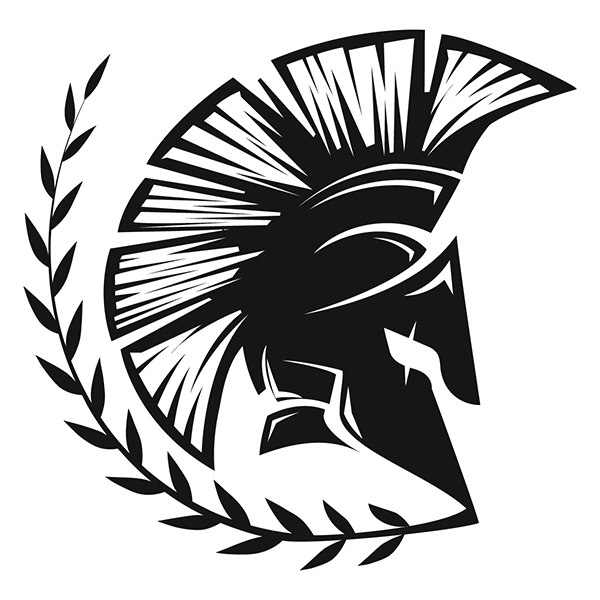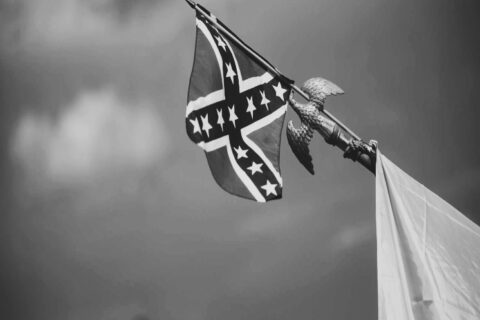Many people are hesitant to support a centralized ruler. This is especially the case in the modern day.
Perhaps this is for good reason. A single centralized authority does come with some integrated risks.
But many people do not see the same risk when looking at the actions of the isolated class – the ultra-rich.
Many people fear the idea of a political strongman, but they simultaneously overlook the market dictator. Even though the latter is just as, if not more, dangerous.
My thoughts on this matter are that these individuals are misguided. As I have tried to explain time and time again on this website, there are a few different “arenas” in a society that hold power: the political arena, financial arena, intellectual arena, and cultural arena.
One of these arenas is the financial realm (controlled by the ultra-rich and powerful, which I call “the isolated class“). This arena is just at risk as any other in terms of centralization and power consolidation.
In fact, the isolated class often gets so wealthy in the open-market states it infests that it outright buys the political arena (politicians and such). This class is completely unaccountable and unchecked. If they work with powerholders in the politburo, then they are unregulated, too. They get all the perks of the politburo, with none of the heat from the public. They can hide in the shadows.
In many ways, the isolated class operates as an aristocratic rule-by-few. And when they are in lockstep, they operate as a rule-by-one; otherwise known as an emperor. But without the public appearance as such, since they can hide mostly in the shadows.
These individuals still hold power, they just do so through a different method (finance versus politics). This is why terms like oligarchy exist in the first place.
Let’s return to our musings on a rule-by-one by considering a traditional emperor.
Throughout history, there have been a lot of great emperors such as Augustus in Rome or Pinochet in Chile.
But there have also been ruthless, degenerate emperors, such as Nero or Caligula.
The problem lies in the person. Whoever becomes the ruler determines the outcome in this form of a government political system. If they are good, the rule will be good. If they are bad, the rule will be bad.
It likewise depends on the citizens. In a traditional empire, if things start to fail, there is a clear point-of-contact for the venting of problems. You take it out on the emperor. So, there is always the safeguard in a traditional empire that you target the political class, since they are the ones with power and the ones visible to the public.
Still, this setup does risk getting a bad ruler occasionally. That is inevitable.
This is why so many people have hesitation in supporting a centralized system. Again, perhaps justifiably so. (Even though I’d argue that the exact same happens when the “people decide” in a democracy. But that’s a topic for another day).
There is risk there, but there is tremendous benefit if you get a good emperor, as well.
High risk, high reward.
Now, if we actually faithfully look at the isolated class, we will see that they are not much different. But they are high risk, low reward.
Given our modern times, I do not know many “good” billionaires. So, it’s hard to mention one.
But we know for sure of some bad ones, the most obvious and well-known being George Soros.
The man is wealthy beyond measure and uses it to increase his power and hegemony: a clear example of the isolated class.
But instead of operating in the political realm as a member of an aristocracy in a rule-by-few, he operates in the financial realm…as a member of an aristocracy in a rule-by-few.
Same cause, same misconduct. Just different avenue and method.
Especially given the fact that our system is mostly an oligarchy that can be bought by people like him.
The libertarian would interject here and say that these arenas are different because the market provides accountability. But this is foolish:
- For one, the supposed political arena in a republic should be more accountable than the market, given the structure of both. But no one with a brain thinks that the United States’ political republic is accountable to anyone right now. So, what does that mean for our market?
- For two, the market can be centralized just as easily as the political arena. We have evidence of that right now just in the fact that people like George Soros exist already. If the market was truly a counterbalance, he would not be here.
What ends up happening is that the market gets centralized slowly over time because there is no true accountability, and then these financial rulers use their advantageous position to buy up/centralize the other arenas.
Societal decline almost always starts with the isolated class in a republic, not any other arena.
The root reason why libertarianism would always fail is because they are so concerned with the government (the political arena), but not the isolated class. They create a giant blind spot to a societal arena that can be just as deadly as a bad government.
But libertarians are not alone in this misguided belief.
The average conservative and liberal believes that our political system can also be salvaged. But this is just as misguided. The political arena has been centralized just the same as the financial arena. In fact, they work in tandem now. They are both fully homogenized; there is nothing left to salvage.
In the United States, one side fears the state (the “Right”), and the other side fears the isolated class (the “Left”), but neither side can seem to get it through their heads that they both end up being the same thing, anyway. The ruling class becomes the ruling class. Across all arenas.
Want to see how this happens? Read this: “The Cycle of Collapse: How Governments Fall” and “The Power Cycle: When the Institutions Own the Government.”
In more ways than one, George Soros and his ilk act as emperors of the financial arena. They are the Caligula of the financial realm.
And just like any other emperor, given the uncountable nature of their power, what they do depends on the person. A good ruler does good. A bad does bad.
There is perhaps no better time in American history to review regarding this topic (the isolated class) than the Gilded Age. This is when the captains of industry arose. But it is also when the robber barons took control.
What determines whether they were a captain of industry (like Carnegie), or a robber baron (like J. P. Morgan)? Nothing but the person. Both became wealthy beyond measure and owned other industries and politicians. They could do whatever they want. So, some did good, and some did evil. This is what always happens when you have unaccountable market emperors.
During the Gilded Age, politicians had so little power it was negligible in comparison to the social activists (cultural arena), the thinkers (intellectual arena), and, of course, the ultra-rich (financial arena).
The presidents themselves are even referred to as “the forgotten presidents” or “the forgettable presidents,” if that doesn’t tell you everything you need to know about the era.
But everyone knows the big industry names: Rockefeller, J. P. Morgan, and Carnegie.
Where, then, did the power truly lie during the Gilded Age?
Congress was wickedly corrupt and fully Northeastern industry owned, while almost all the change was led by societal institutions. Much similar, I’d argue, to our current situation. Our current politicians are just sock puppets of the people that actually have real power and other arenas.
We’ve been like this for a while. Nothing new under the sun, and all.
The same power structure still exists now. They’ve just found out how to hide it better.
The main point I am trying to get at is that you should not be hesitant regarding a political emperor, while at the same time being perfectly fine with the financial, market emperor.
This common fear of one or the other is a hypocritical position. Because the latter will inevitably create the former. It is a part of the cycle of civilizations. This is exactly how societies degenerate and then collapse.
Either fear both or fear neither. Be consistent.
Additionally, if you are going to hypocritically fear one, it should be the isolated class. Not the political emperor.
At least with a political emperor, we have some form of counterbalance in the population. The leader is known, can be targeted, and is directly representational of the state. Most of the isolated class cannot say the same. They are hidden and operate in secrecy. A political emperor cannot do so.
This is why I believe the isolated class and the other arenas are far more dangerous than the political arena. They will still lead to a centralized political arena, and the other arenas will also be consolidated. It is my opinion that this is where true tyranny actually begins. The other arenas can be used to hedge against the political arena in a traditional rule-by-one, but not if they are already lost.
Still, this article is not advocating for an emperor. That is a topic for another time.
What I am arguing for is to get you to understand the actual risk of the isolated class. They are just as much, if not more, of a problem than the political class.
Just like how we cannot install an empire and expect every single emperor to do good, we cannot have a free open market where billionaires exist and expect them to always do good. They are even more unaccountable than the political class. More often than not, they will become a George Soros or Rothschild. Given history, they are statistically more prone to evil than a political emperor.
If we are to ever reach a sustainable state, we have to move past the caveman philosophy of “state bad, market good.” Reality is far more nuanced than that. It depends on the persons involved in any of the systems.
The solution requires what we do not have: which is accountability. We need accountability over every arena in our own society. Not just the political arena. But especially the financial arena – no free market for Soros-types.
Different dissidents will take different paths to get that accountability. Some may prefer an emperor that is our guy who then has total control over the other arenas. Maybe others prefer a more democratic approach or something like corporatism.
The method is not as important as the understanding of the root problem.
That root problem is that all of these arenas develop their own centralized emperors if left free to act as they please. Which means they can never be allowed to do so. Each arena must be made accountable to whatever power source chosen. The libertarian and anarchist utopian dream of absolute decentralization will always lead to an emperor in any societal arena.
Only strong power can combat this reality.
However that is accomplished is open to discussion.
But the fact that this must be done can only be ignored at our own peril.

A Christian, husband, father, and American dissident. Join him in seeking truth and sipping sweet tea during the collapse of the American Empire. You can find more of his work at hiddendominion.com. Eph. 5:11.






Another fine article sir.
“It is not State-action in itself which the middle and lower classes of a nation ought to deprecate; it is State-action exercised by a hostile class, and for their oppression. From a State-action reasonably, equitably, and nationally exercised, they may derive great benefit.” p. 19.
Matthew Arnold, ‘Democracy’, ‘Culture and Anarchy’
I understand where you’re coming from in declaring such persons hypocrites on this matter, but they’re only being hypocritical if they understand how the dynamics work as you’ve explained in the body of the article. I would say that is unlikely with most of the persons of which you speak. You were right initially in stating that they are misguided, which, as you know, is something altogether different than being hypocritical, and involves an entirely different cause/effect dynamic that organizations like Heritage Foundation et al do all in their power to perpetuate.
I could declare, e.g., that most so called “Constitutional Originalists” are hypocrites because they claim to be such when the great bulk of them are altogether ignorant of the vast differences between the original constitution and its core principles, and the mutilated one they defend. That’s not hypocrisy on their parts, it’s Constitutional illiteracy and blind ignorance. And, moreover, they’ll probably never come to the knowledge of the truth of the matter in either case.
But anyway, good write-up otherwise.
There is a huge difference in genuine free-market capitalism and ‘crony’ capitalism, which is what currently prevails in the U.S. And, no, I am not interested in the least in an ’emperor’, whether it be Emperor Trump or Emperor DeSantis, or Emperor whoever. The libertarian-bashing on this site is getting tiresome. If people would come to know true libertarianism, it basically means, to a true libertarian – leave us the hell alone.
https://faithandheritage.com/2013/12/why-libertarianism-wont-save-us/
The above link is a bit dated (2013), but the substance of it was a real revelation for me. At the time I was reading Albert Jay Nock and Frederic Bastiat. I’d like to be “left the hell alone” too, but my thinking has undergone some transformation in the past decade, thanks in large measure to the writers of the Faith & Heritage archives.
You are correct, Rebel Forever, in that a true and genuine free and open market did not create scumbags like Soros, Gates, Bezos, Morgan, Rockefeller, Rothschild, Bilderberg, etc. It was rigged and crony markets that brought us these jackals. Free markets are about as real and prevalent as unicorns. Also, we should not conflate free enterprise with capitalism. Capitalism is a close cousin of communism. Not to overuse my favorite expression, but they are truly two cheeks on the same ass.
“leave us the hell alone.”
There in lies the major failing of libertarianism. They WILL NOT leave you, or I, or anyone alone. When evil is in power, it will do anything to force itself on us all. Just look at drag queen story times, faggots teaching kindergarteners to masturbate, 80 iq savages flooding across our borders by the million. It is up to good, God fearing men to take the power and to force our goodness on the rampant evil. There is no option to stick your head in the sand and ignore it all, as is the want of libertarians. Deo Vindice
This was really transcendent! The Founding Fathers noted that no government would work if the citizens had no virtue. Now take a man with virtue with and ability to rule justly and fairly and you have found that “natural aristocracy” that Thomas Jefferson believed was indispensable to good and orderly government.